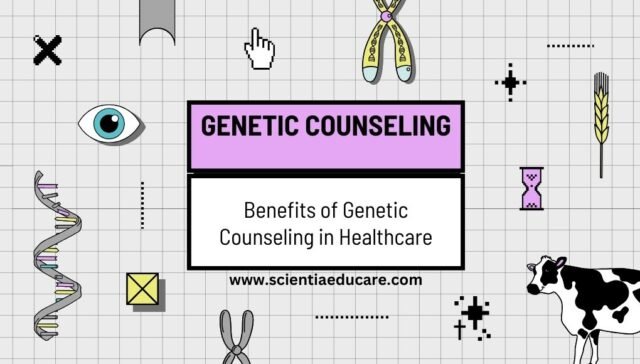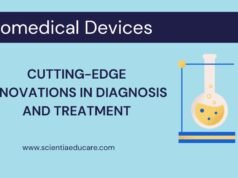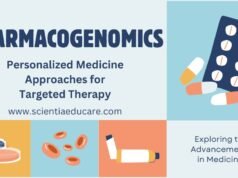Genetic Counseling: Its Role and Importance in Modern Healthcare
Introduction
Genetic counseling has emerged as a crucial field in modern healthcare, aiding individuals and families in understanding the implications of genetic conditions. It bridges the gap between genetics and patient care, ensuring informed decision-making regarding genetic disorders, reproductive choices, and personalized treatments.
Benefits of genetic counseling in healthcare,
How genetic testing helps families,
Role of genetic counseling in pregnancy,
Importance of genetic counseling for rare diseases,
Understanding inherited genetic conditions and risks.
What is Genetic Counseling?
Genetic counseling is a process that helps individuals assess their risk of inherited conditions. A trained genetic counselor provides information on genetic disorders, interprets test results, and advises on management and prevention strategies. This service is valuable for individuals with a family history of genetic conditions, expecting parents, and those diagnosed with hereditary diseases.
Role of Genetic Counseling in Healthcare
Genetic counseling plays a vital role in several areas of healthcare, including:
1. Reproductive and Prenatal Counseling
- Helps prospective parents understand their risk of passing genetic conditions to their children.
- Provides guidance on prenatal testing options such as amniocentesis and chorionic villus sampling (CVS).
- Assists couples undergoing assisted reproductive technologies (ART) with preimplantation genetic testing.
2. Cancer Genetic Counseling
- Assesses hereditary cancer risk by evaluating personal and family medical histories.
- Offers genetic testing for conditions like BRCA1 and BRCA2 mutations linked to breast and ovarian cancer.
- Provides risk-reducing strategies, including preventive screenings and lifestyle modifications.
3. Cardiovascular Genetic Counseling
- Evaluates genetic factors contributing to heart diseases like hypertrophic cardiomyopathy and arrhythmias.
- Helps in early diagnosis and prevention through genetic testing and lifestyle interventions.
- Assists in identifying at-risk family members for timely medical intervention.
4. Neurological and Metabolic Disorders
- Supports families affected by neurogenetic disorders such as Huntington’s disease, Alzheimer’s, and Parkinson’s.
- Provides guidance on managing inherited metabolic disorders like phenylketonuria (PKU) and mitochondrial diseases.
5. Pharmacogenomics and Personalized Medicine
- Genetic counseling aids in understanding how an individual’s genes affect drug response.
- Helps doctors personalize treatment plans to maximize efficacy and minimize adverse reactions.
- Plays a crucial role in developing targeted therapies in oncology and chronic disease management.
The Genetic Counseling Process
The genetic counseling process typically involves:
- Initial Consultation – A genetic counselor reviews medical and family history.
- Risk Assessment – Evaluates the likelihood of inherited conditions based on genetic information.
- Genetic Testing and Interpretation – Explains testing options, benefits, and limitations.
- Support and Guidance – Helps individuals cope with test results and make informed healthcare decisions.
- Follow-up and Monitoring – Provides continued support, updates, and preventive care recommendations.
Benefits of Genetic Counseling
- Early Detection and Prevention: Identifies genetic risks before symptoms develop.
- Informed Decision-Making: Empowers patients with knowledge about their health risks.
- Customized Healthcare Plans: Enables personalized treatments based on genetic makeup.
- Emotional and Psychological Support: Helps individuals cope with potential genetic risks.
- Family Planning Assistance: Guides couples in making reproductive choices.
Challenges and Ethical Considerations
Despite its benefits, genetic counseling faces challenges such as:
- Ethical Dilemmas: Deciding whether to undergo testing and the implications of results.
- Privacy Concerns: Safeguarding genetic information from misuse.
- Emotional Burden: Coping with positive test results can be stressful.
- Limited Access: Genetic counseling services may not be available in all regions.
Where to Find Genetic Counseling Services?
- National Society of Genetic Counselors (NSGC)
- American College of Medical Genetics and Genomics (ACMG)
- Genetic and Rare Diseases Information Center (GARD)
Further Reading
- Genetics Home Reference by NIH
- Centers for Disease Control and Prevention – Genetic Testing
- World Health Organization – Genomics
Conclusion
Genetic counseling is a pivotal aspect of modern healthcare, assisting individuals in understanding and managing inherited conditions. As advancements in genetics continue, the role of genetic counseling will become increasingly essential in personalized medicine, early disease detection, and preventive care. Ensuring accessibility and ethical considerations will further strengthen its impact on global healthcare.
MCQs on Genetic Counseling: Role and Importance in Healthcare
1. What is genetic counseling primarily aimed at?
A) Providing psychological therapy
B) Assessing the risk of genetic disorders
C) Treating genetic disorders directly
D) Encouraging genetic modifications
Answer: B) Assessing the risk of genetic disorders
Explanation: Genetic counseling helps individuals understand their genetic risks and make informed medical and reproductive decisions.
2. Who provides genetic counseling?
A) General physicians
B) Certified genetic counselors and medical geneticists
C) Psychologists
D) Pharmacists
Answer: B) Certified genetic counselors and medical geneticists
Explanation: Genetic counseling is conducted by specialized professionals trained in genetics and counseling.
3. Which of the following conditions can be detected through genetic counseling?
A) Hypertension
B) Huntington’s disease
C) Common cold
D) Migraine
Answer: B) Huntington’s disease
Explanation: Genetic counseling is useful for conditions with a hereditary basis, such as Huntington’s disease.
4. What is the primary benefit of genetic counseling?
A) Prevention of genetic diseases
B) Curing all genetic disorders
C) Eliminating genetic mutations
D) Modifying inherited traits
Answer: A) Prevention of genetic diseases
Explanation: It helps individuals make informed decisions about reproduction, reducing the risk of passing on genetic conditions.
5. What type of genetic testing is commonly advised during pregnancy?
A) Pharmacogenomic testing
B) Carrier screening
C) DNA fingerprinting
D) Twin studies
Answer: B) Carrier screening
Explanation: Carrier screening identifies whether parents carry genes for genetic disorders, helping predict the likelihood of transmission.
6. Which condition is commonly screened for in newborn genetic testing?
A) Alzheimer’s disease
B) Phenylketonuria (PKU)
C) Heart disease
D) Arthritis
Answer: B) Phenylketonuria (PKU)
Explanation: PKU is a metabolic disorder detected in newborns to prevent complications through early dietary interventions.
7. Which ethical issue is most relevant to genetic counseling?
A) Digital privacy
B) Genetic discrimination
C) Media influence
D) Immigration laws
Answer: B) Genetic discrimination
Explanation: People may face discrimination in employment or insurance based on genetic test results, raising ethical concerns.
8. Genetic counseling is crucial in which medical field?
A) Psychiatry
B) Obstetrics and gynecology
C) Orthopedics
D) Dermatology
Answer: B) Obstetrics and gynecology
Explanation: Genetic counseling is essential in prenatal screening, assisting parents in making informed reproductive choices.
9. Which law protects individuals from genetic discrimination in the U.S.?
A) HIPAA
B) GINA
C) FDA Act
D) ADA
Answer: B) GINA
Explanation: The Genetic Information Nondiscrimination Act (GINA) prevents genetic discrimination in health insurance and employment.
10. What is a pedigree analysis used for in genetic counseling?
A) Identifying blood types
B) Mapping inheritance patterns of traits
C) Diagnosing bacterial infections
D) Assessing organ function
Answer: B) Mapping inheritance patterns of traits
Explanation: A pedigree chart tracks family history to determine inheritance risks for genetic disorders.
11. What is the role of a genetic counselor in patient decision-making?
A) Making all medical decisions for the patient
B) Offering options and guiding informed choices
C) Recommending experimental treatments
D) Suggesting genetic modification
Answer: B) Offering options and guiding informed choices
Explanation: Genetic counselors provide information and support, allowing patients to make independent, informed decisions.
12. What is the significance of BRCA gene testing?
A) Predicting diabetes risk
B) Assessing risk for breast and ovarian cancer
C) Diagnosing schizophrenia
D) Detecting vitamin deficiencies
Answer: B) Assessing risk for breast and ovarian cancer
Explanation: Mutations in BRCA1 and BRCA2 genes increase the risk of breast and ovarian cancer.
13. Which type of genetic test is used before prescribing medications?
A) Prenatal screening
B) Pharmacogenomic testing
C) Whole genome sequencing
D) Newborn screening
Answer: B) Pharmacogenomic testing
Explanation: This test helps determine how an individual’s genes affect their response to medications.
14. What is the main purpose of carrier screening?
A) Diagnosing diseases in children
B) Identifying potential genetic risks in parents
C) Detecting viral infections
D) Measuring cholesterol levels
Answer: B) Identifying potential genetic risks in parents
Explanation: Carrier screening helps couples understand their risk of passing genetic conditions to offspring.
15. Which reproductive option is available for couples at risk of passing genetic disorders?
A) In-vitro fertilization (IVF) with preimplantation genetic diagnosis (PGD)
B) Homeopathic treatment
C) Fasting
D) Mindfulness meditation
Answer: A) In-vitro fertilization (IVF) with preimplantation genetic diagnosis (PGD)
Explanation: PGD screens embryos for genetic disorders before implantation in IVF procedures.
16. What is an example of a chromosomal disorder diagnosed through genetic counseling?
A) Cystic fibrosis
B) Down syndrome
C) Huntington’s disease
D) Sickle cell anemia
Answer: B) Down syndrome
Explanation: Down syndrome results from an extra copy of chromosome 21, diagnosed through prenatal genetic tests.
17. What is the significance of genetic counseling in personalized medicine?
A) One-size-fits-all treatments
B) Tailoring treatments based on individual genetic makeup
C) Avoiding medical interventions
D) Relying only on family history
Answer: B) Tailoring treatments based on individual genetic makeup
Explanation: Personalized medicine customizes treatments based on genetic profiles for better outcomes.
18. Genetic counseling can help detect hereditary cancer syndromes such as:
A) Common cold
B) Lynch syndrome
C) Malaria
D) Psoriasis
Answer: B) Lynch syndrome
Explanation: Lynch syndrome is an inherited condition increasing the risk of colon and other cancers.
19. Which type of genetic inheritance is involved in cystic fibrosis?
A) Autosomal recessive
B) Autosomal dominant
C) X-linked dominant
D) Mitochondrial
Answer: A) Autosomal recessive
Explanation: Cystic fibrosis occurs when an individual inherits two defective CFTR genes, one from each parent.
20. Genetic counseling can assist in diagnosing which neurodegenerative disorder?
A) Tuberculosis
B) Huntington’s disease
C) Flu
D) Sinusitis
Answer: B) Huntington’s disease
Explanation: Huntington’s disease is an inherited neurological disorder diagnosed through genetic testing.














